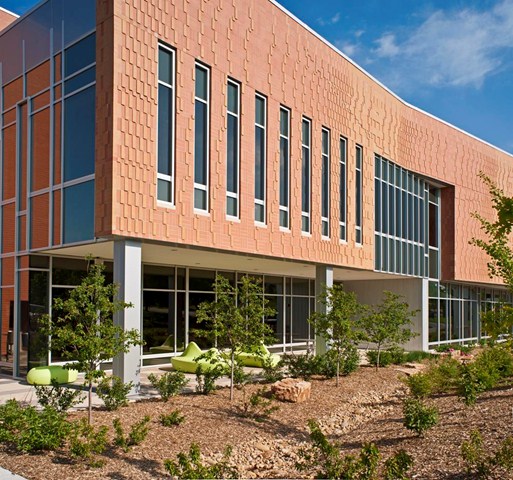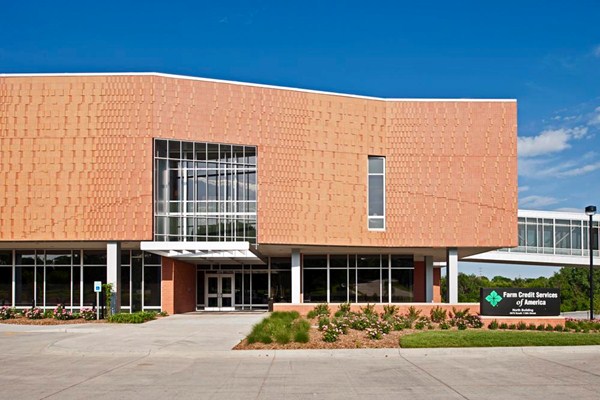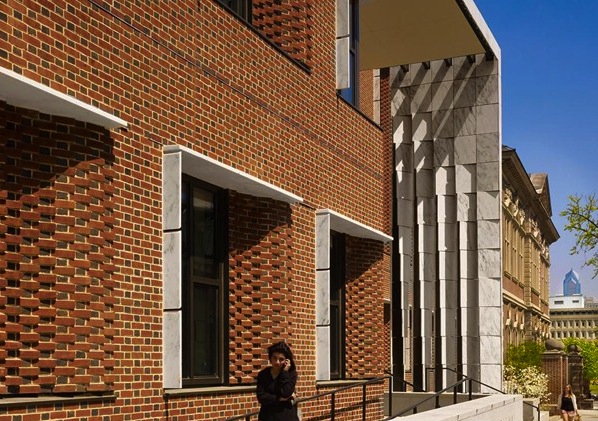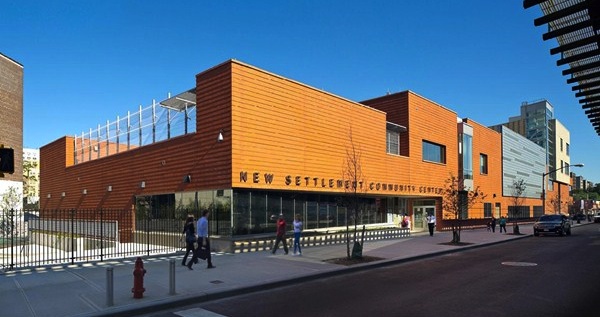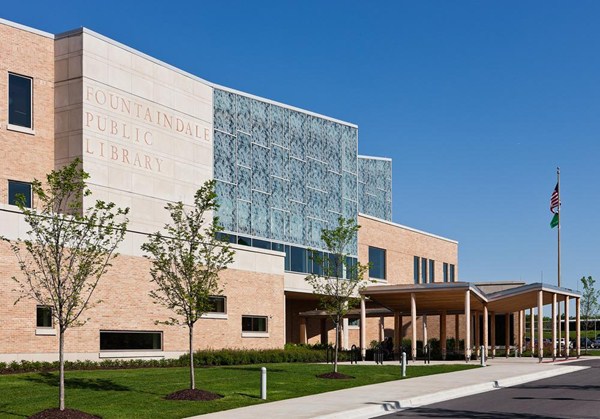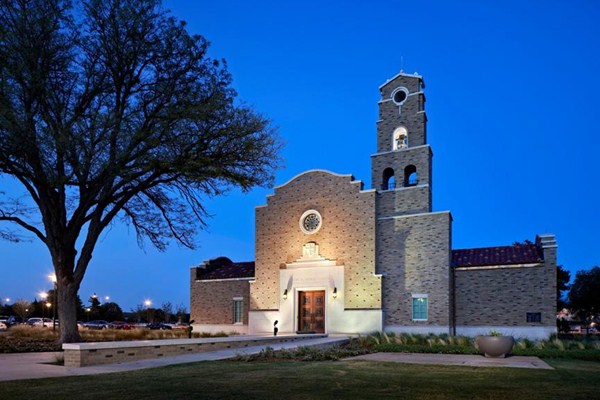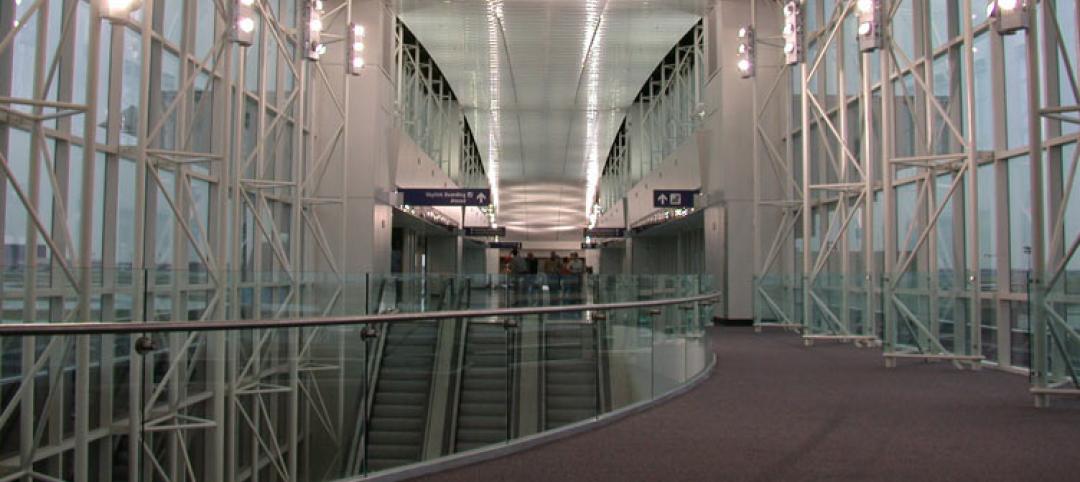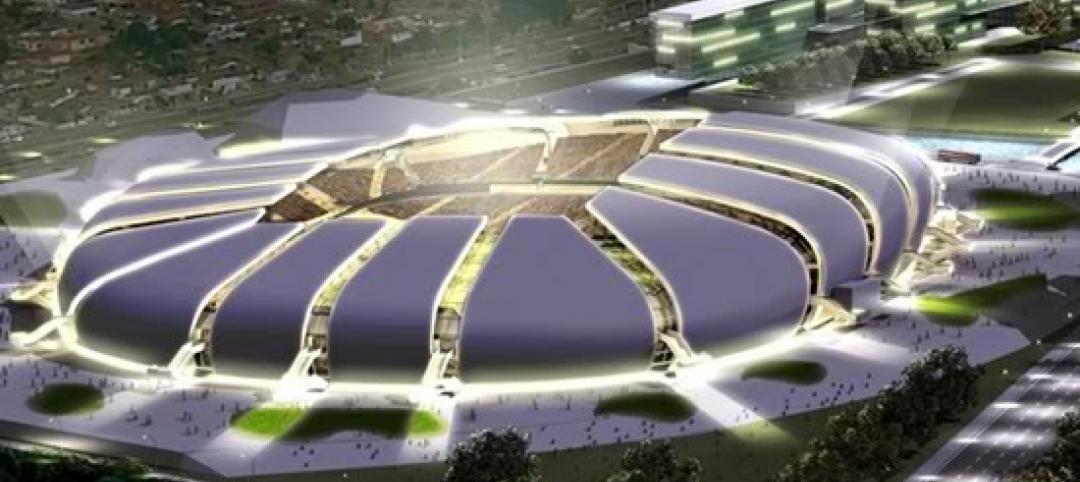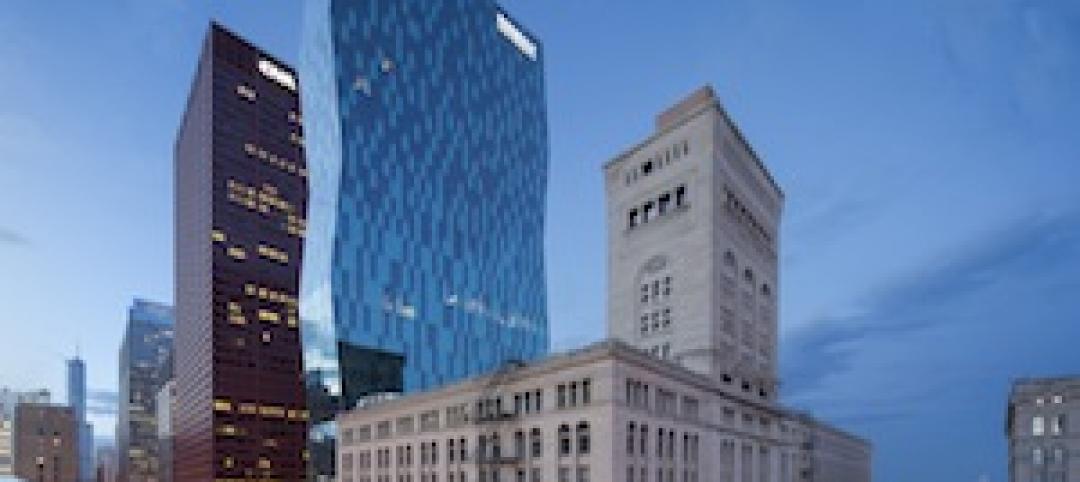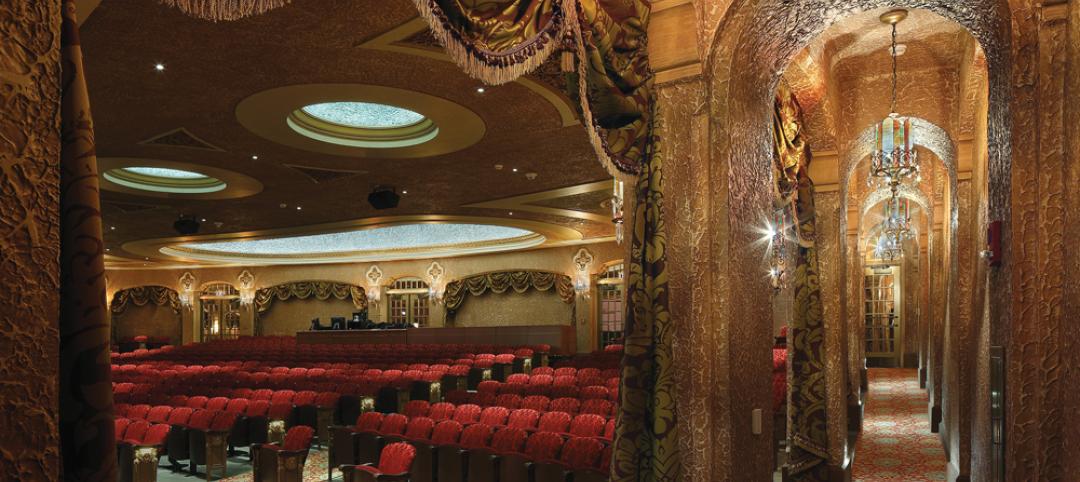Fired clay brick continues to evolve with new color blends, textures, and architectural shapes that inspire innovative and enduring designs. These design trends are evident in the winning projects from the BIA's Brick in Architecture Awards.
Here’s a look at the latest brick design trends based on recent award winners:
1. Unique brick patterns using different depths and orientation
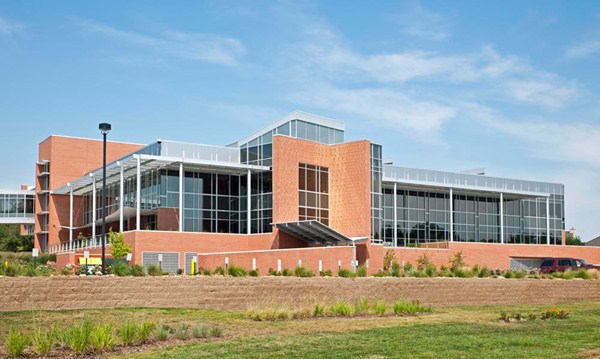
Photos: Scholz Images
For the west façade of the 77,000-sf Farm Credit Services of America Corporate Office Building 2 in Omaha, Neb., Clark Enersen Partners created an abstract representation of wind blowing through a wheat field—using two brick colors at various depths and orientation. The west façade brick also helps minimize late day glare, while openings in the façade still filter natural light through vertical fins.
2. Gray and white shades of brick
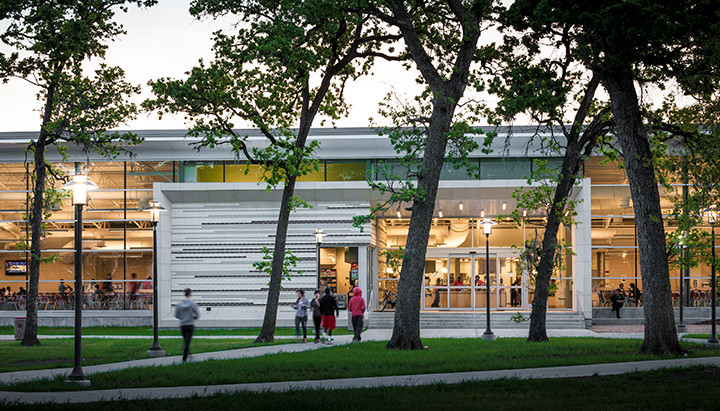
Photos: Slyworks Photography
Cougar Woods Dining Hall, a 25,000-sf pavilion on the University of Houston’s main campus, promotes a passive approach to sustainable design. Designed by PageSoutherlandPage, the dining area has extensive glazing on its north side to provide daylighting within the building, while minimizing heat gain. Solid masonry walls with a lighter color were used to protect the southern and western elevations from the sun and reduce the heat island effect.
In another example, Wormley School Rowhouses in Washington, D.C.’s historic Georgetown neighborhood were painted neutral colors to match the existing neighborhood. While maintaining historic integrity, Cunningham | Quill Architects converted a school building into condominiums and a new row of townhouses built on the adjacent schoolyard.
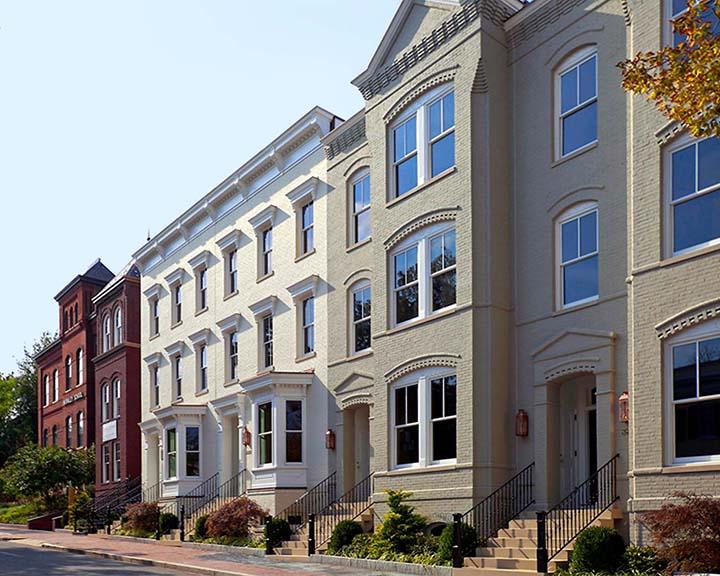
Photo: Chris Morrison
3. Brick for flexibility in color, shape, and form
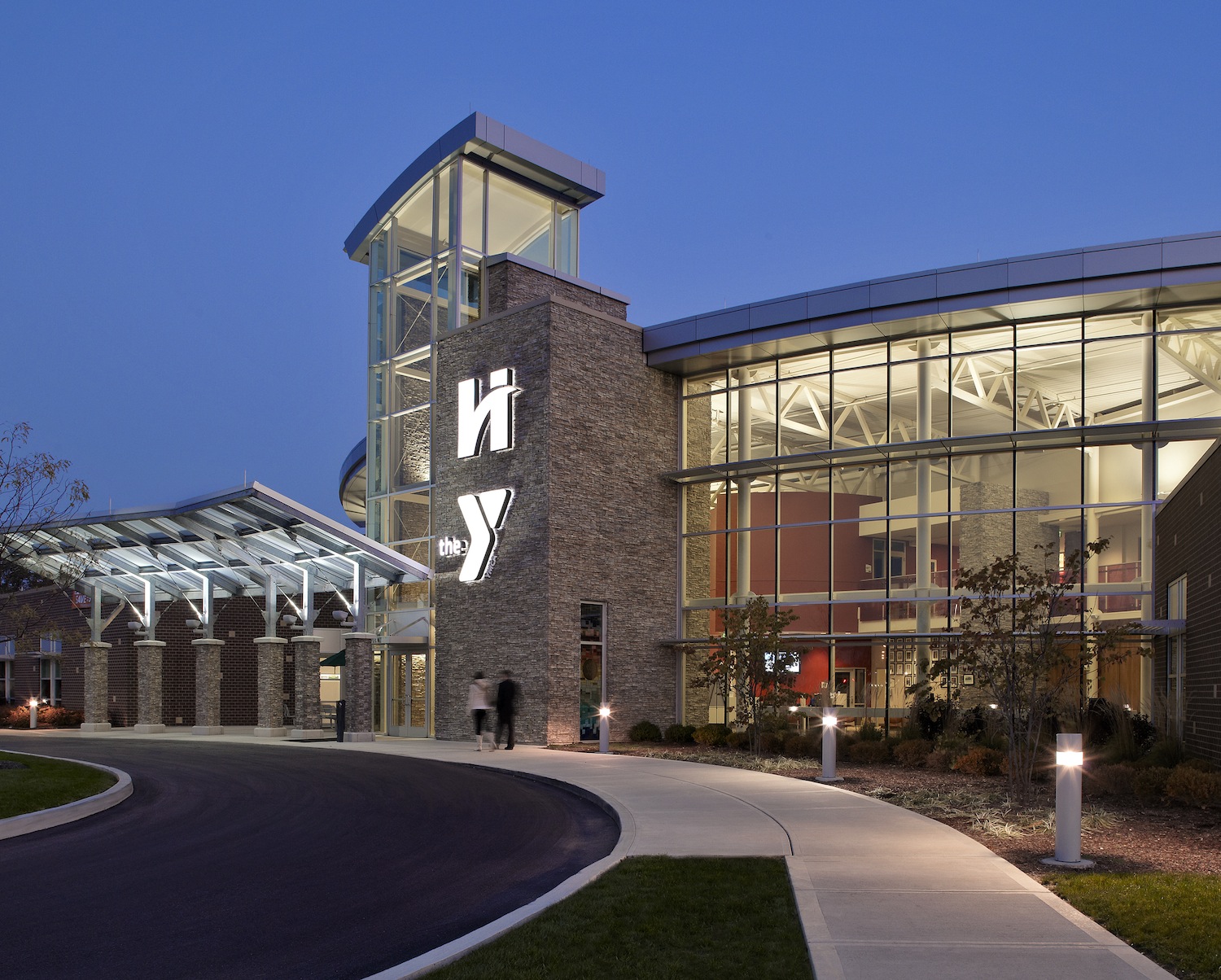
Photos: Tony Frederick Photography
For Hendricks Regional Health YMCA, Avon, Ind., American Structurepoint aimed to celebrate the symbiotic relationship of health and wellness through an integral use of brick and organic forms. Brick was used in areas where there were noise and privacy concerns. A two-tone scheme used a deep brown brick color to anchor the façade and hold up the lighter, buff-colored brick to create a sense of place and familiarity with the hospital brand. Brick easily conformed to the straight, angled, and curved walls throughout the facility.
4. Textures: sanded, artisan, wirecut, and tumbled
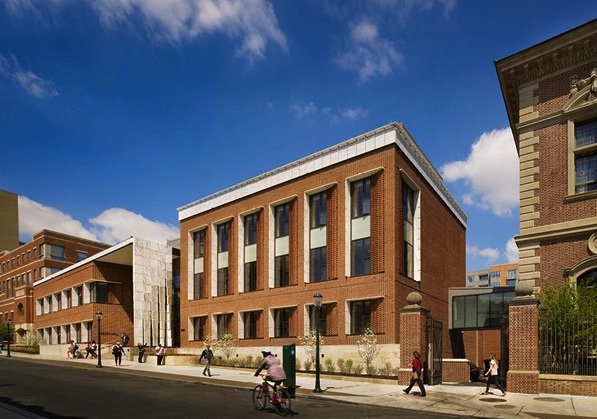
Photos: Halkin Architectural Photography
The University of Pennsylvania Law School uses masonry to define the image of a 21st century law school. One of Penn Law’s primary goals was to unify its campus with the addition of the new Golkin Hall. To do so required maintaining the material presence of Silverman Hall, built for the law school in 1900. Kennedy & Violich Architecture used sand-molded brick and a distinctive Flemish bond pattern used on all subsequent buildings.
5. Contrasting brick colors and course patterns
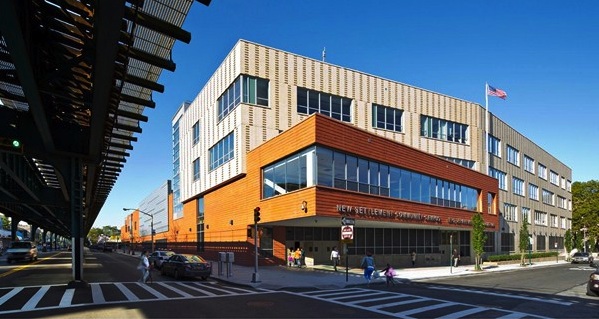
Photos: David Sundberg
The 172,000-sf New Settlement Campus in Bronx, N.Y., houses three schools for 1,000 PK-12 students on a busy urban block. Dattner Architects interplays massing, materials, and patterning to create scale and interest for the block-long building. A two-story, red brick commons wing parallels an elevated subway train, and intersects a four-story buff brick classroom wing that bends away from the street. The contrasting brick colors and course patterns distinguish the two wings. A graduated vertical pattern of darker projecting brick articulates the classroom wing’s cream-colored brick façade, which is perpendicular to the elevated train to minimize noise.
6. Hinge-shaped face brick
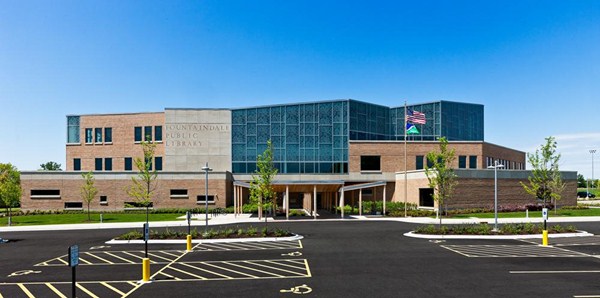
Photos: Ballogg Photography
Fountaindale Public Library in Bolingbrook, Ill., is located in a suburban environment at the confluence of the village’s municipal campus, tract housing, and a recreational park. To facilitate the organic shape of the building’s exterior, Nagle Hartray Architecture used an innovative, single modular size hinge-shaped face brick for 28 different inside and outside corner conditions.
7. Brick to introduce new architectural motifs/ornamentation
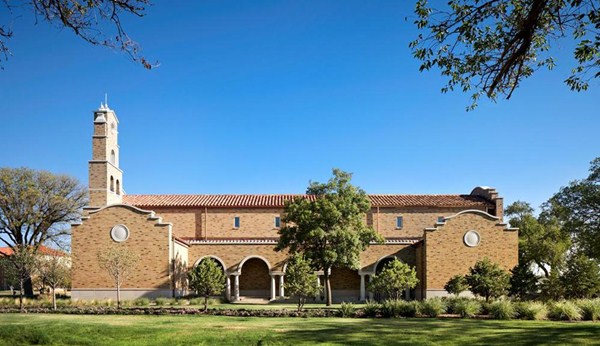
Photos: Dror Baldinger
McKinney York Architects designed the 7,000-sf non-denominational Kent R. Hance Chapel, Lubbock, Texas, in the Spanish Renaissance style of the historic sections of campus. The chapel’s bell tower, curved articulation of the gabled parapet walls and ermine patterning of the principal façade are all instances where brick played a decisive role to introduce new architectural motifs, celebrating only the most important architectural elements.
For more brick designs, see the 2014 and 2013 Brick in Architecture Award winners.
Related Stories
| Aug 22, 2013
Energy-efficient glazing technology [AIA Course]
This course discuses the latest technological advances in glazing, which make possible ever more efficient enclosures with ever greater glazed area.
| Aug 21, 2013
Why research is the ticket to successful airport wayfinding
Wayfinding is more than just signs; it requires a holistic approach based on communicating information that helps people make the right decision at the right time.
| Aug 19, 2013
Discovery of hidden asbestos complicates DFW terminal renovations
The finding of more asbestos in Terminal B than expected, and the pending merger of US Airways and the airport’s largest tenant, American Airlines, is causing construction delays on a $2.3 billion Dallas/Fort Worth Airport terminal renovation.
| Aug 19, 2013
Integration of solar panels in building skin seen as key net-zero element
Recent high-profile projects, including stadiums in Brazil for the upcoming World Cup and Summer Olympics and a bank headquarters in the U.K., reflect an effort by designers to adopt building-integrated photovoltaics, or BIPV.
| Aug 14, 2013
Green Building Report [2013 Giants 300 Report]
Building Design+Construction's rankings of the nation's largest green design and construction firms.
| Jul 29, 2013
2013 Giants 300 Report
The editors of Building Design+Construction magazine present the findings of the annual Giants 300 Report, which ranks the leading firms in the AEC industry.
| Jul 22, 2013
Transportation Facility Report [2013 Giants 300 Report]
Building Design+Construction's rankings of design and construction firms with the most revenue from airport terminals and other transportation-related facilities, as reported in the 2013 Giants 300 Report.
| Jul 19, 2013
Renovation, adaptive reuse stay strong, providing fertile ground for growth [2013 Giants 300 Report]
Increasingly, owners recognize that existing buildings represent a considerable resource in embodied energy, which can often be leveraged for lower front-end costs and a faster turnaround than new construction.
| Jul 18, 2013
Top Local Government Sector Construction Firms [2013 Giants 300 Report]
Turner, Clark Group, PCL top Building Design+Construction's 2013 ranking of the largest local government sector contractor and construction management firms in the U.S.
| Jul 18, 2013
Top Local Government Sector Engineering Firms [2013 Giants 300 Report]
STV, URS, AECOM top Building Design+Construction's 2013 ranking of the largest local government sector engineering and engineering/architecture firms in the U.S.


